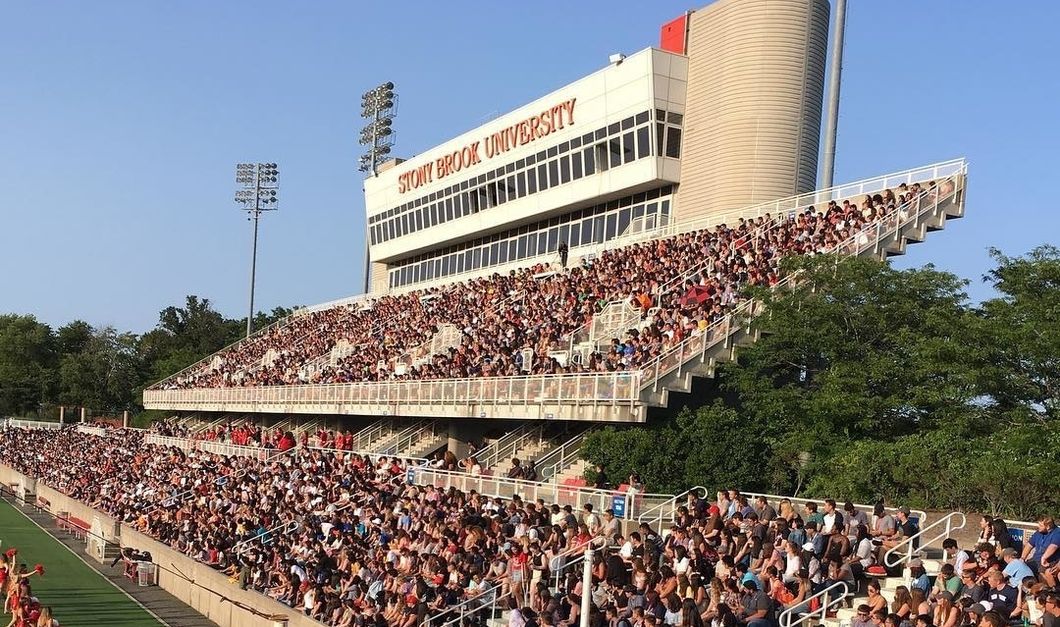No matter how old you are, you probably identify at least a little with either the arts or athletics. Growing up, most of us were either the 'cool' kids who typically played some type of sport or the not-so-cool kids that were interested in the arts. A simple question would be, why can't someone be both? Well, it's possible, but do the in-betweeners ever feel completely at home in one setting? This is an issue that tends to extend to college, and a point was brought up to me not long ago regarding the social gap between athletes and other students. In order to eradicate this issue, we must first understand where it stems from.
All in all, it seems to me that the divide begins in schools. Schools are the first places where children are beginning to be socialized, so the most impact tends to be made there. If schools are teaching children to look up to older high school athletes, as most do, it is almost certain that most children will aspire to be a part of that culture when they get to high school. Sure, some students will want to join the arts because they notice an affinity towards them, but some might still look the other way because of what they have been taught to admire.
Once in high school, perhaps even more impact is made. Students are discovering who they are and what their place in the world around them is. The way that their high school treats them means everything because that's typically their world for four long years.
From what I gather, the majority of high schools put athletes on a pedestal, letting them get away with more than others, as well as rewarding them more than others.
There are several problems with this, the first being that other students are placed in the background. Students who take part in the arts in school are often held to a typical standard, where they must follow all of the rules with little leniency and are not as recognized for their achievements as the athletes. However this does not only negatively affect students in the arts, but athletes as well. It might seem a little odd to claim that they are negatively affected while given all the privileges, but it is true to a certain extent.
For example, these athletes will not be adequately prepared for life after high school. After years of being told how wonderful they are and being exempt from average rules of behavior, these students are likely to graduate high school and be shocked at how they are expected to act and how people no longer hand them special privileges.
Both students involved in the arts and athletics are hurt here as well because they are all missing out on the crucial socialization of one group with another that may have different interests.
It is so important that these groups meet so that they are able to network with others who maybe aren't exactly like them. There is also always the possibility that students will find new interests that they did not even know they had by speaking to others outside of their groups.
This divide is also perpetuated by the tendency of school districts of all types to overfund athletics and underfund the arts. While the funding of the school may seem like a thing that wouldn't really affect the social lives of students, it creates a socioeconomic divide of sorts between groups. The arts tend to feel smaller and recognize the divide easily in funding since they face the hardships of it.
If funding was appropriately allocated between programs, this monetary divide could be quickly solved. Perhaps in the absence of the socioeconomic divide, tackling the more social aspect might be easier.
It is so important to address the situation early in elementary, middle, and high schools because it may carry on to university. At the university level, it may be easier to eradicate the divide since most students seem to be on the same page. However, it can still seem intimidating to approach someone of a social group that you have been conditioned to feel uncomfortable around. The divide is unfair for both parties, and the most a student can really do is to step out of their comfort zone and start a conversation with someone they don't know. It starts with the individual, so be kind to others and remember that there is growth in discomfort.
- 4 Reasons Theatre Should Be A Core Subject In Schools ›
- A Life Without Art Is No Life At All ›
- Stop Making Us Choose Between Fine Arts And Sports ›
- Funding Opportunities | College of Fine Arts - The University of ... ›
- Fine Arts Should be Spared from School Districts' Budget Cuts ›
- Student Fine Arts Fund | UChicago Arts | The University of Chicago ›
- Fine Arts Funding Board | College of Fine Arts and Communication ... ›
- The Fine Art Group: Advise, Finance, Invest. ›
- Trump Budget Cuts Funding For Arts, Humanities Endowments And ... ›
- Funding for Arts Education is Vital for Students | HuffPost ›

















